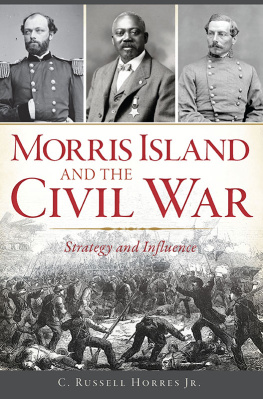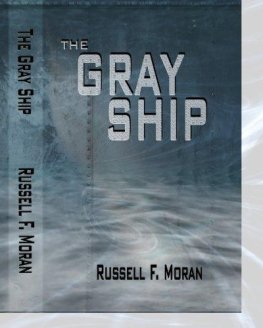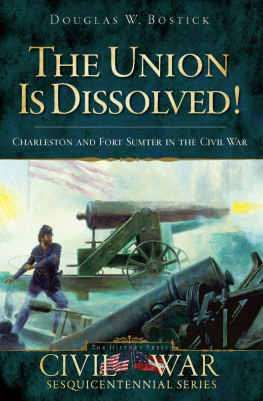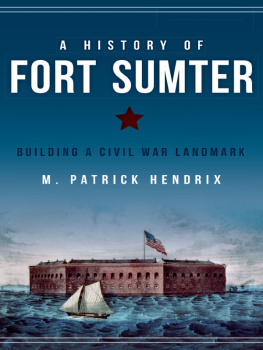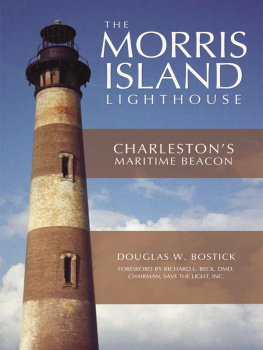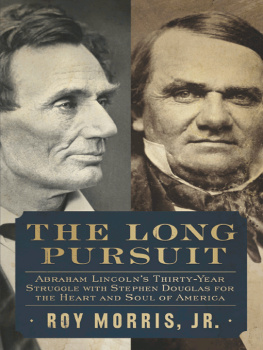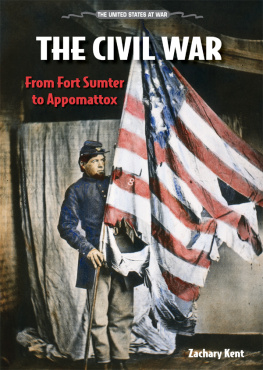
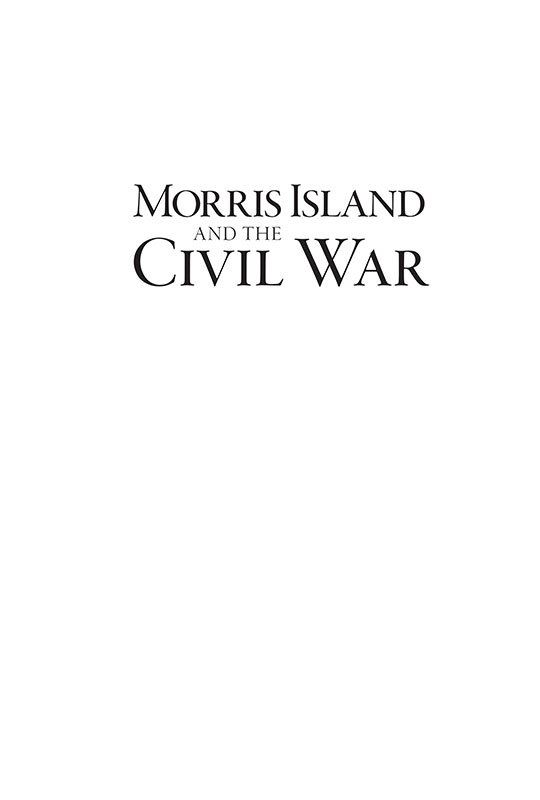

Published by The History Press
Charleston, SC
www.historypress.com
Copyright 2019 by C. Russell Horres Jr.
All rights reserved
First published 2019
e-book edition 2019
ISBN 978.1.43966.654.8
Library of Congress Control Number: 2018963666
print edition ISBN 978.1.46714.173.4
Notice: The information in this book is true and complete to the best of our knowledge. It is offered without guarantee on the part of the author or The History Press. The author and The History Press disclaim all liability in connection with the use of this book.
All rights reserved. No part of this book may be reproduced or transmitted in any form whatsoever without prior written permission from the publisher except in the case of brief quotations embodied in critical articles and reviews.
CONTENTS
ACKNOWLEDGEMENTS
I am grateful to all the historians and national park rangers with whom I have had the privilege of working over the many years that I have been involved in this project. They have all had a role in shaping this work. I also want to thank the librarians and archivists at the South Carolina Historical Society, the Charleston County Public Library, the Library of Congress, the National Archives, the Geisel Library at the University of California San Diego, the Wilson Library at the University of North Carolina, the South Caroliniana Library, the Coker College Library, the Charleston Library Society, the Fondren Library at Rice University and the Perkins Library at Duke University for their assistance in locating manuscripts and images.
A special appreciation is extended to professor emeritus Dr. Denis Brosnan at Clemson University, Major General Douglas Robertson (U.S. Army, retired) and John Turner Williamson, JD (U.S. Marine Corps, retired), who lent their expertise to reviewing this work.
I also am indebted to my family, who supported my efforts to understand what really happened on Morris Island during the Civil War.
INTRODUCTION
Fort Sumters role in starting the Civil War was brief, relatively bloodless and front-page news. By contrast, in the final years of the conflict, the forts role was prolonged, deadly and relegated to footnotes in news of the war despite the fact that the siege of the fort wore on for eighteen months and involved thousands of combatants on land and sea. That so much effort would be expended to capture Fort Sumter speaks not to its military importance but to its symbolic value. Fort Sumter became an icon of the war with opposite symbologies. To the North, Fort Sumter was where the rebellion began, the flag was attacked and the ignominy of defeat had to be avenged. To the South, the fort was the Lexington and Concord in the fight for Southern independence and had to be held at all cost. Visitors today are frequently astonished to find how small and insignificant the fort appears given its prominent role in starting the bloodiest war this nation has ever experienced.
The campaign for the fort lasted longer than the Sieges of Vicksburg and Petersburg combined, involved the personal intervention of President Abraham Lincoln and in the eyes of those directly involved produced very little of consequence either to the Union war efforts in the South Atlantic theater or to the Confederacys promulgation of the war. However, in hindsight, through a most improbable sequence of events, what was accomplished, though unplanned, significantly changed the course of the war and the destiny of the nation. The contribution was not given its proper recognition, however, because it involved African Americans. Even today, many Americans do not appreciate the contributions African Americans made to the preservation of the Union and their own emancipation. A handful of leaders did understand the implications, but they were small voices in an arena with many competing views.
There are a number of conflicting accounts of what occurred during those eighteen months when men lived, fought and died on Morris Islanda narrow sandy island that is the nearest point of land to Fort Sumter. Some contemporary accounts no doubt were designed to obfuscate military objectives; others expressed racial biases prevalent in those times. Even more difficult to explain are reports of eye witnesses who could not have possibly observed close-quarter combat but reported on such as if they were involved. They were on the battleground, but they reconstructed events from hearsay, often from equally confused and frightened soldiers. Other events were twisted by history as a consequence of the inexactitude of reporting. One example that the author has encountered a number of times is history students who visit Fort Sumter convinced that Virginian Edmund Ruffin fired the first shot of the Civil War. It must be true, they say, I read it in a history book. The records show that Ruffin was on Morris Island on April 12, 1861, and was given the honor of firing the first shot at Fort Sumter from a particular battery on that island. Newspapers picked up the story, likely because Virginia had not yet determined to secede from the Union. If South Carolina and its six Southern colleagues were to have a chance at success, they needed Virginia in the fight. It was headline news that Ruffin had fired the first shot, but details of the actual sequence of firing on the fort by the various forts and batteries were omitted or only to be found by careful reading. Those records show that a number of shots had been fired in the early dawn by other batteries before Morris Island. Further, though Edmund Ruffin had indeed fired the first shot from his battery, a number of other batteries on Morris Island had fired before his. The headlines were repeated throughout the years as historian after historian recounted the events, so that over a century and a half later, readers are convinced it was Edmund Ruffin who started the Civil War.
In addition to the inexactitude of reporting in contributing to distorted accounts, military historians speak of the fog of war as confounding our ability to know what actually happens in battles. For example, the sequence that led to the firing on Fort Sumter was much like a clockwork mechanism, each event advancing toward conflict in irreversible steps. The meteoric rise of the Republican Party, which fused a nascent abolition movement into a political force; the divided election that made Abraham Lincoln president and triggered the secession of South Carolina; the dismissal of Fort Moultries commander and the appointment of Major Robert Anderson, the units second in command; and Andersons decision to abandon Fort Moultrie for the safety of Fort Sumter all brought the start of war closer and closer. Andersons move was seen by Southern leaders not as an effort to protect his garrison but as an act of war. Historians quickly realized how pivotal Andersons decision to move the garrison was in setting the stage for the war but were confounded by the number of different views on when and how he evacuated Fort Moultrie that were prevalent only a decade after the events. Most of the participants, with the exception of Robert Anderson, were still alive at the time, and they were asked what happened. Their accounts differed markedlythe fog of war and fallibility of human memory had begun distorting our ability to know what actually happened the night after Christmas at Fort Moultrie in 1860. So it is with events on Morris Island later in the waronly there was much more going on than when the world was focused on Major Robert Anderson and his small garrison. Events at Vicksburg and Gettysburg were getting much more attention than events on Morris Island in the summer of 1863.
Next page
